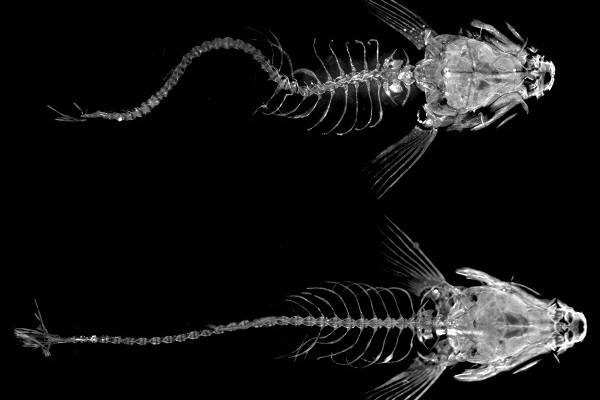News & Stories
Read the latest news and stories in the SickKids newsroom. Looking to interview someone? Connect with our media team.

December 21, 2018
Mobile media device use is associated with language delay in infants
A recent study by researchers at SickKids, published in the Journal of Developmental and Behavioural Pediatrics, revealed a significant association between mobile media device use and expressive speech delay.
December 20, 2018
Engaging families in shared decision making is essential to examine the benefits and limitations of each treatment option for patients with newly diagnosed, typical immune thrombocytopenia (ITP).

December 19, 2018
SickKids-led research team uncovers a drug that disarms life-threatening bacteria
A team led by Dr. Roman Melnyk, Senior Scientist in the Molecular Medicine program at The Hospital for Sick Children (SickKids), found a drug that can block the effects of the three deadly C. diff toxins without affecting healthy gut bacteria.

December 18, 2018
The ultimate Christmas gift: 6-month-old hears mom and dad for the first time
On December 10, 2018, Francesca Jones had her cochlear implants activated, often referred to as being ‘turned-on’, allowing her to truly hear for the first time. Her mother, Julia Tirabasso, said “Ciao Francesca!” and Francesca looked right into her eyes and smiled.

December 17, 2018
This month marks the 25th anniversary of the discovery of the gene responsible for Wilson disease by scientists at The Hospital for Sick Children (SickKids).

December 14, 2018
Summary of SickKids work to date to address concerns regarding Dr. Koren's research
Concerns continue to be raised regarding Dr. Gideon Koren's published research and SickKids is committed to continuing to address these matters.

December 14, 2018
Update on Matters Related to Dr. Koren’s Research
Despite the actions taken to date, fresh concerns have surfaced in the area of scientific reliability and academic publication conflict of interest disclosures.

December 13, 2018
SickKids neonatologist Dr. Rosemary Moodie appointed to the Senate of Canada
Dr. Rosemary Moodie, Associate Staff Physician, Neonatology, and a longtime member of the SickKids family, has been appointed to the Senate of Canada.

December 13, 2018
Neurosurgeons from SickKids and Toronto Western Hospital (TWH) have performed the first deep brain stimulation (DBS) to treat drug-resistant paediatric epilepsy in Canada. With only 40 published cases of the procedure being performed in children for this condition, Andi Dreher, 9, is among the first in the world to undergo this treatment.

December 12, 2018
Researchers at The Hospital for Sick Children (SickKids) have determined that neuroinflammatory signals drive spinal curve formation in zebrafish, and can be suppressed using common drugs like NAC.

December 7, 2018
Congratulations to the winners of the 2018 President’s Award
This year, there were 34 nominations for the President's Award with nominations coming from areas across SickKids, including clinical, administration, research and learning. Two individuals and three teams received this year's awards.

November 28, 2018
SickKids finds an effective screening strategy for iron deficiency in young children
Dr. Pat Parkin and her team tested a screening program for iron deficiency using a blood test for a protein called ferritin. The ferritin blood test was developed several decades ago and measures iron stores in the body but, until this study, had not been used as a screening test for early identification.

